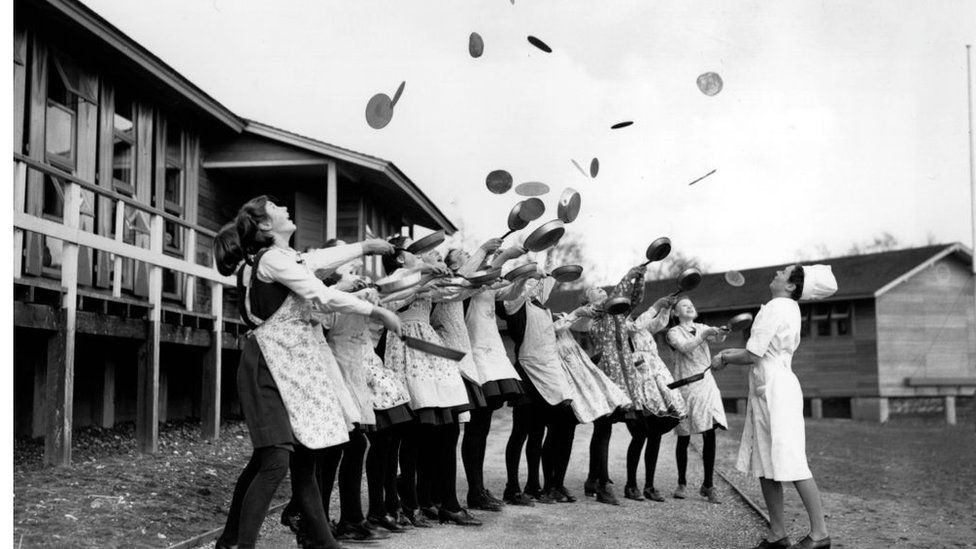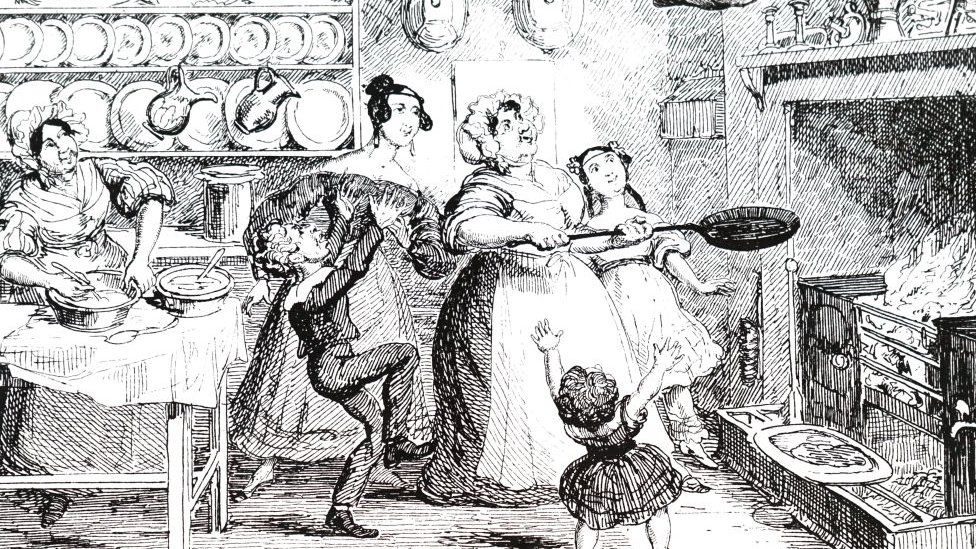In the past, Ireland's first Sunday in Lent was referred to as Chalk Sunday.
Fiona Byrne, history curator at the Ulster Folk Museum, said that the practice dates back to the early 1900s.
On the backs of single women's coats and dresses as they walked to and from Mass, young boys would draw Xs. They might have touched them or dusted them with chalk, or both.
It implied that you were unable to tie the knot and was actually somewhat cruel.
Who would want their single status to be publicized?

Lent is an ancient English word that means "lengthen.". Spring, when the days start to get longer, is when Lent is observed. Christians can recall Jesus' desert fasting through this. It is a time of sacrifice and a test of self-control.
The ancient Irish custom of Chalk Sunday coincides with the celebration of Shrove Tuesday, also known as Pancake Tuesday, the final day before Lent began. On Shrove Tuesday, people celebrated and got married in anticipation of the six-week period of penitence, fasting, and self-denial.
For the duration of Lent, strict Catholics in Ireland abstained from eating meat, eggs, dairy products, alcohol, and even having sex. It was not a time for music and celebration. For the six weeks of Lent, it was customary to store musical instruments.
According to Ms. Byrne, Shrove Tuesday was traditionally the last day to get married before Lent. Prior to Shrove Tuesday, there would have been a significant rush for priests. ".
Single people were viewed as having disregarded their social obligation to marry and were considered to be of lower social standing.
Chalk Sunday consequently put the single in the spotlight.
The role of women back then, according to Ms. Byrne, was to get married, have kids, and maintain a home.
Women accomplished so much more than that, but some women may not have found success in marriage. "Spinster" is a detestable term. ".
In Ulster, the custom of Chalk Sunday was not well-liked. In the early 20th century, she claimed, it was more prevalent in the south-western region of Ireland.
There might have also been catcalls and general public jeering.
In the Republic of Ireland, particularly in Cork and Kerry, Shrove Tuesday was known as Skellig Night.
As dusk fell, raucous mobs poured onto the streets of towns, mocking the singles and yelling at them to "go to the Skelligs.".
Ash Wednesday would arrive later in County Kerry because it is believed that the Skellig islands still follow the old calendar, giving those who are single enough time to travel there and get married before Lent starts.
The homes of the single people were occasionally called by masked individuals who tried to drag them onto the streets.
Since the Irish word "pus" means "scowl," the day was also known as "Pus Sunday" because those who were single were said to wear a scowl to show their displeasure at being alone.
Salt Monday came the day after Chalk Sunday.
According to Ms. Byrne, "Salt Monday" was a day when girls who failed to find a husband were "preserved" until the end of Lent by having salt thrown at them.
"It implied that they would be kept still until they were 'ripe. But unlike getting an X on your back as you were returning from Mass, this was a little lighter-hearted. ".
She noted that Salt Monday targeted women.
It provides a clue about women's fertile cycles. As there is no clock on men, there was no need to preserve them. " .
She claimed that when viewed with a modern perspective, it appears "mean."







